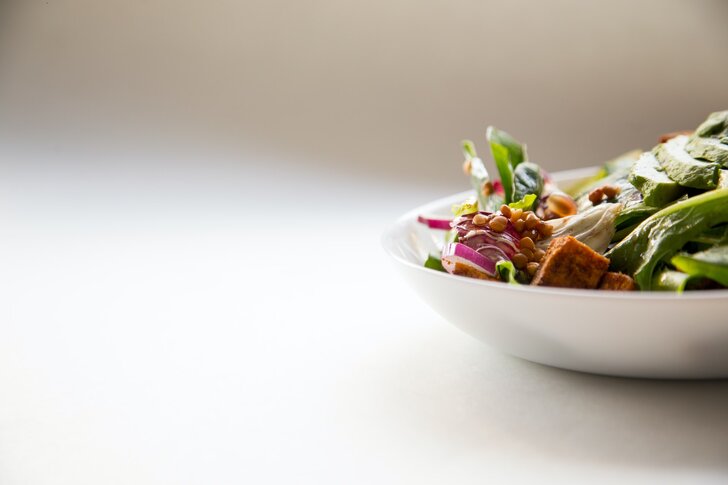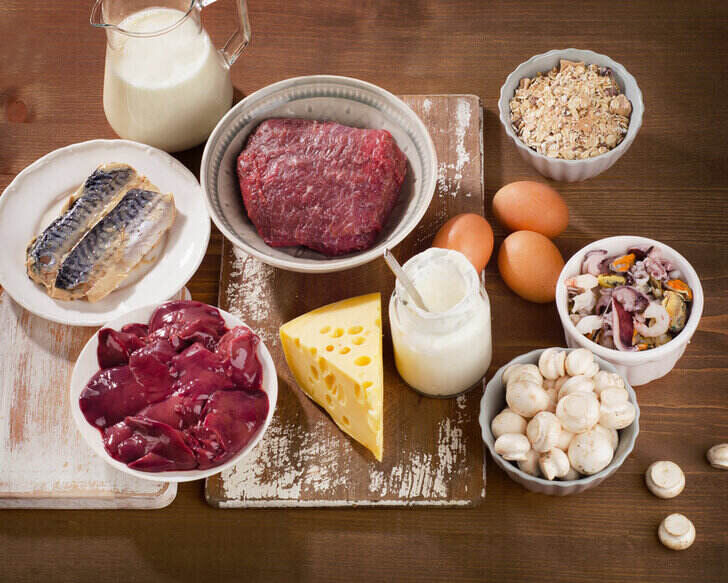
Is a Vegan Diet as Good as They Say?

Is going vegan really the best idea? Well, that’s a tricky question, and the debate on this topic can never end.
The number of people cutting back on animal products because of environmental, ethical, or health reasons has been increasing over the last decade. And the most popular motivation to go vegan is the promised health advantages.
Read – What are the health benefits of a vegan diet?

Unsplash | Experts say that the deficiencies linked to a vegan diet may impact brain health
Surely, a vegan diet is rich in fiber, calcium, and low in cholesterol. However, there are some misconceptions about cutting meat, eggs, and fish completely from the diet. Experts say that the deficiencies linked to a vegan diet may impact brain health. But does that apply to every person who has gone vegan?
To have more insight, we’ve compiled a list of the risks associated with a vegan diet. Have a look.
Risk #1 – Deficiency of Vitamin B12
The most discussed health risk of being vegan is the deficiency of vitamin B12. This vitamin is primarily found in animal products, including meat, fish, poultry, eggs, or microorganisms like yeast.
Vitamin B12 is extremely significant for brain health, and it’s unreachable in a vegan diet until you choose to get it through supplementation or fortification. Studies say that 50% of vegans are B12 deficient, and the consequences are far-reaching. B12 is important for nerve function, its deficiency may lead to anxiety, depression, and various bowel problems.

Dreamstime | The most discussed health risk of being vegan is the deficiency of vitamin B12 that’s found in animal products, including meat, fish, poultry, and eggs
Risk #2 – Increased risk of stroke
Researchers have found that those on plant-based diets are at a 20% higher risk of stroke. Why so? This is because plant-based diets lack omega-3 fatty acids, and the deficiency of this nutrient makes the brain vulnerable to conditions like stroke.
Surely, those who don’t eat meat are at a lower risk of heart diseases, but studies have shown that such people are more prone to strokes on the flip side. And since vegans are deficient in vitamin B12, that may also contribute to stroke.
Risk #3 – Iron & Iodine deficit
Renowned dieticians claim that they observe a significant iodine deficiency in people who’ve gone vegan. An iodine deficiency can lead to brain damage, which can easily be prevented with a healthy mix of plant and animal-based diets.
Iodine is predominantly found in cow’s milk, so non-vegans who avoid dairy are also at risk. Similarly, iron, which is required to boost blood cells’ health, is very hard to obtain from a completely plant-based diet. Research shows that almost 50% of vegetarians have an iron deficiency, which often results in low energy levels.

Dreamstime | Research shows that almost 50% of vegetarians have an iron deficiency, which often results in low energy levels
Wrapping it up
Vegan diets are growing in popularity as they offer several health perks like weight loss, better heart health, and less risk of chronic diseases. But a lot more digging has to be done before we establish that a vegan diet is the healthiest among other diets. So plan your meals carefully to ensure that you’re getting a good balance of the essential nutrients to avoid deficiencies.
More in Health & Well-being
-
`
Here’s Everything You Need to Know About Open Relationships
An open relationship is a consensual arrangement where partners agree to engage in romantic or sexual relationships with other people. Unlike...
June 6, 2024 -
`
Explore the Multifaceted Goals of Meditation
What is the goal of meditation? If you have ever found yourself asking this question, you are not alone. Meditation has...
May 31, 2024 -
`
When is National I Love You Day Celebrated? Mark Your Calendar
Life can get hectic, and sometimes amidst the daily grind, we forget to express our love and appreciation for the phenomenal...
May 23, 2024 -
`
When’s the Best Time of Day to Fish?
For any angler, a successful fishing trip hinges on several factors. But one of the most crucial elements is timing. Knowing...
May 14, 2024 -
`
What Mental Illness Does Britney Spears Have? Discovering the Answer
Britney Spears, a name that resonates with millions around the globe, goes far beyond the glitz and glamour of her stardom....
May 7, 2024 -
`
Here Are Some Easy Ways To Say No To Unrealistic Expectations In Your Relationship
If you are in a relationship, you should constantly work on improving it. Some early lovebirds fall in love too quickly...
May 3, 2024 -
`
Therapy? Medication? What Are the Treatments for PTSD
Post-Traumatic Stress Disorder (PTSD) is a common after-effect of traumatic events. It can be a debilitating condition, but the good news...
April 25, 2024 -
`
Courting vs Dating – Which Relationship Path is Right for You?
In today’s fast-paced world, the terms ‘courting’ and ‘dating’ often swirl around in conversations about relationships. While some people may use...
April 23, 2024 -
`
Essential Mexico Travel Tips for a Seamless Adventure
Mexico, a land of vibrant culture, breathtaking landscapes, and mouthwatering cuisine, beckons travelers from across the globe. But before you embark...
April 16, 2024















You must be logged in to post a comment Login